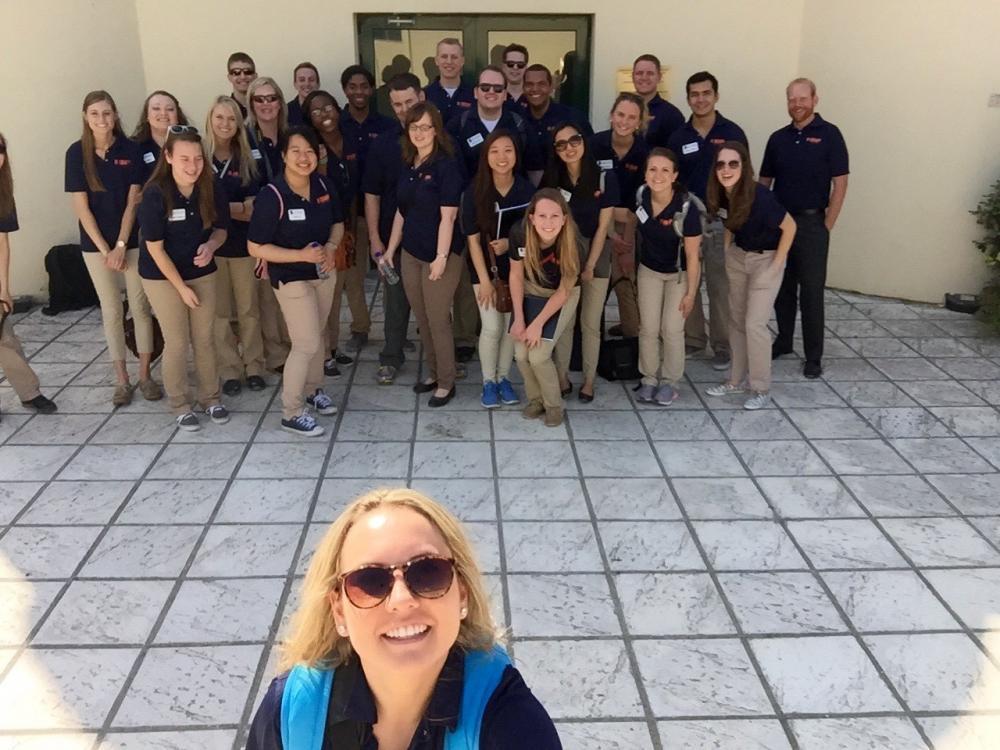IBIP Day 1 | Greek Culture and Farming

Where: Tour of the American Farm School university campus in Thessaloniki, Greece including their dairy farm, poultry unit, cheese-making building, & a lecture on Greek food culture inclusive of a cooking lesson
Who we met: Thanos Bisbiroulas, Dr. Strato Souglis, and Dr. Tryfon Adamidis
Upon arrival in Greece, we spent our first morning walking around the campus and viewing the various aspects that the campus farm, vineyard, and olive orchard has to offer. We visited the dairy barn as well as the building where the cows are milked and the milk is bottled. This is all a very mechanical process. We then visited where the chickens are housed. Here they are kept in cages and have a conveyor belt collecting the eggs that are laid. Afterwards, we went to the cheese making facility where we watched how feta cheese is made. We enjoyed lunch on campus and then had the opportunity to learn about Greek culture from Dr. Adamidis who afterwards taught us how to cook traditional Greek Dolmades (stuffed grape leaves) and Tiropitakia (cheesy filo dough “pies”).
Some of the most interesting things we learned include...
1. One reason the American Farm School started raising turkeys was to support a small American population in Thessaloniki. The Americans wanted to have turkey for Thanksgiving and Christmas, so the American Farm School now supplies that demand.
2. The American farm school produces 4,000 bottles of milk daily from their 200-head cattle production. This milk is sold in local grocery stores. Although the milk is priced €.7 above the competitors, many locals purchase the milk because they know it is good quality and they want to support the school.
3. The American Farm School milks their cows at 3am and 3pm. This is so that the milk produced during the 3am shift can be in the market the same day it is milked and so that the students can be involved in the 3pm milking shift.
4. The American Farm School has their own natural composting system, which differentiates solid and liquid waste. They use this compost to fertilize the crops and herbs they grow.
Our late afternoon and evening cooking class was run by Dr. Tryfon Adamidis. We would like to thank him for his hospitality and help on our cooking. We also would like to thank Thanos Bisbiroulas for our tour of campus and Dr. Strato Souglis for the cheese making experience. We had an awesome day and are looking forward to tomorrow!